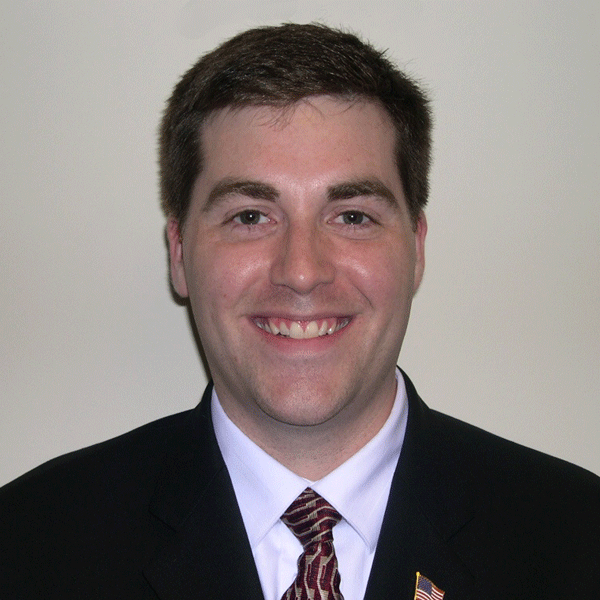At age 19, U.S. Marine Cpl. Jake Hill's left leg was amputated just above the knee after he stepped on an enemy improvised explosive device in the notorious southern Afghanistan district of Sangin.
"The heel bone was gone ... just pulverized," Cpl. Hill told me last year. "I kind of made up my mind right (there) that I wanted to cut it off."
Hill, who led his fellow wounded Marines to safety during the battle, subsequently received the Silver Star for gallantry in combat. His courageous actions during the Sept. 16, 2010 firefight underscore years of sacrifices made by the U.S. military in Sangin, which has been the scene of countless battle during the war in Afghanistan.
On May 8, I spoke with a U.S. Marine officer who had just finished leading the last American forces out of Sangin: Col. Christopher Douglas, 48, of Ballston Spa, New York.
"We departed (Forward Operating Base) Nolay on (May) 4," said Col. Douglas from Afghanistan's Camp Leatherneck.
From the moment Douglas arrived in Sangin with his Marines, he saw how years of sacrifices by U.S. and coalition forces were beginning to transform one of Afghanistan's worst Taliban enclaves. What convinced him of the progress wasn't a set of statistics, but the words of the Afghan people.
"They spoke very fondly of all the coalition forces that got them to the position that they were in," Col. Douglas said. "They'd show us pictures of who they worked with previously — they're really proud of it. It's part of their culture."
Douglas pointed to Afghan forces collaborating with local populations to find enemy improvised explosive devices that could have killed or maimed countless troops and civilians. Such a coordinated effort to save lives would have been impossible when the Taliban and al-Qaida were murdering and intimidating residents of Sangin.
"It gave a lot of credibility to the brigade and the local governance," Douglas said. "They found 178 IEDs and a couple weapons caches."
With few at home paying close attention to the war in Afghanistan during its closing months, I asked the colonel whether his Marines felt supported by fellow Americans as they left Sangin. The answer was a resounding "yes."
"The one thing I will say that has been rather inspiring is the amount of support we received from the American people at FOB Nolay," he said. "The large care packages got to the point where he had to ask individuals and groups to stop sending them."
Douglas was also deeply moved by the bond his Marines forged with Afghan forces, who are now fully responsible for ensuring that Sangin never again becomes an insurgent hotbed.
"One of the biggest inspirations has been looking at how quickly they've developed a rapport ... everything we've dealt with deals with trust, friendship, and rapport building," the colonel said. "There's that warrior ethos on both sides ... frankly, it's a culture."
While crediting his team, Douglas was quick to highlight those who served in Sangin before him as most deserving of praise.
"Their sacrifice is what made our job really — in comparison to theirs — not that difficult, because they set such a strong foundation for the area," the Marine said.
While acknowledging that "only history can tell" what impact clearing Sangin will have on Afghanistan, the colonel said that American troops performed brilliantly under difficult, dangerous conditions.
"What was the mission? Stop the Taliban, remove safe havens for al-Qaida," Douglas said. "Yep, that was done."
He also believes in the Afghans' ability to keep the historically volatile area secure.
"I'm very confident," he said. "When you look at the intangibles ... the morale component is what we're going to see continue to enable their success."
Douglas and other military leaders are eternally grateful — as all of us should be — to the young men and women who fought and bled in Sangin.
"I'd like to say thank you to everybody who served in this area," he said.
I told Col. Christopher Douglas about Cpl. Jake Hill, who, like many other U.S. troops injured and killed in Sangin, sacrificed so much to make the area safer.
"Did he make a difference?" Douglas said. "At the time, he's maybe wondering ... but now? Yeah, he did."
(SET PHOTO) tsi052114adAP.jpg (END PHOTO) (SET CAPTION) Colonel Christopher Douglas, from Ballston Spa, New York, and the team leader of Security Force Assistance Advisor Team 2-215, wishes Brig. Gen. Zamarai Khan Tarz the best of luck prior to leading his team out of Forward Operating Base Nolay, Helmand province, Afghanistan, May 4, 2014. Photo courtesy of Cpl. Joshua Young. (END CAPTION)
Tom Sileo is a nationally syndicated columnist and author of "BROTHERS FOREVER: The Enduring Bond Between a Marine and a Navy SEAL that Transcended Their Ultimate Sacrifice." Written with Col. Tom Manion (Ret.) and published by Da Capo Press, "BROTHERS FOREVER" will be released in spring 2014. To find out more about Tom Sileo or to read features by other Creators Syndicate writers and cartoonists, visit the Creators Syndicate website atwww.creators.com.






View Comments